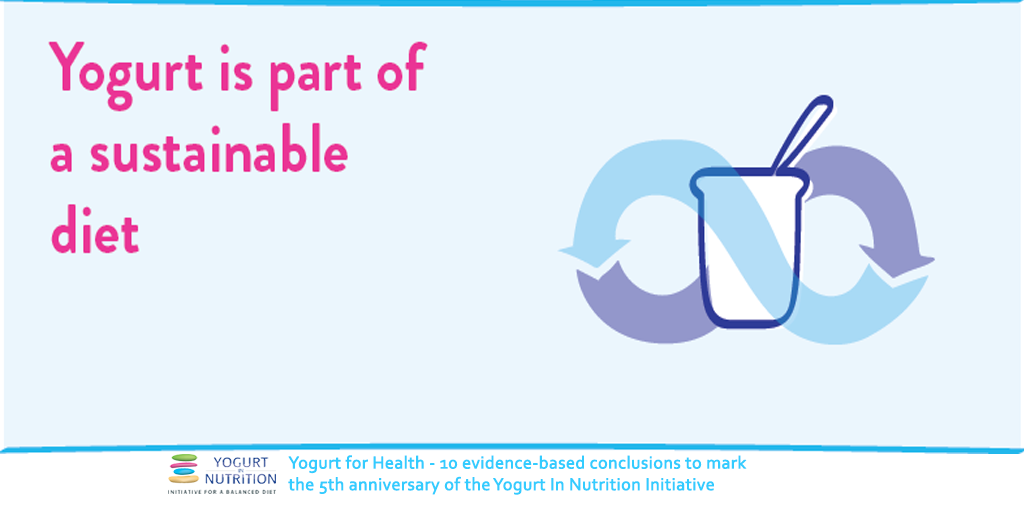“Yogurt is part of a sustainable diet” is one of the 10 evidence-based conclusions made by the YINI board about the health effects of yogurt… learn more below
Yogurt is a low-cost source of nutrients
Nutritious foods such as meat, fish, poultry, fresh fruit and vegetables generally cost more than high energydense
foods – grain snacks, sweets, chocolate and fatty, sugary foods. This remains true across different countries, age groups and indicators of diet quality.
Achieving greater equality between people on high and low incomes requires foods to be high in nutrient quality, yet affordable for all.
- Yogurt is the lowest-cost source of dietary calcium as well as a highly affordable source of high-quality protein
- Food profiling has suggested that low-fat yogurt and milk are roughly equivalent to sweets in terms of per-calorie cost, yet much higher in overall nutritional quality.
- In terms of calories or nutrients per Euro, yogurt is less expensive than animal-derived foods, such as meat, poultry and fish, and is more comparable with beans and eggs.
“Dairy foods, including yogurt, are an affordable source of high-quality protein, calcium and other essential nutrients.”– Dr Chris Cifelli
Yogurt is culturally acceptable
Not all nutrient-rich foods are socially acceptable.
People in low- and middle-income countries, for example, often prefer traditional plant-based diets, with milk and dairy foods such as yogurt as their major source of animal protein on grounds of custom, religion or culture.
References:
- Drewnowski A. Measures and metrics of sustainable diets with a focus on milk, yogurt, and dairy products. Nutr Rev 2018;76:21–8.
- Darmon N, Drewnowski A. Contribution of food prices and diet cost to socioeconomic disparities in diet quality and health: a systematic review and analysis. Nutr Rev 2015;73:643–60.
- YINI Digest, 2016. Yogurt as a sustainable food: an expert’s opinion and supporting evidence.



